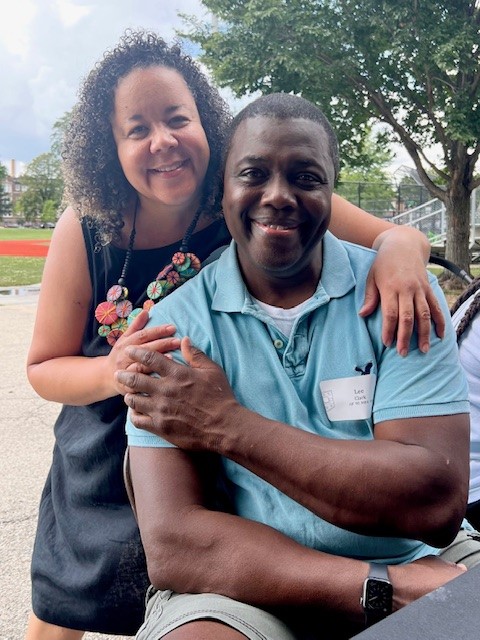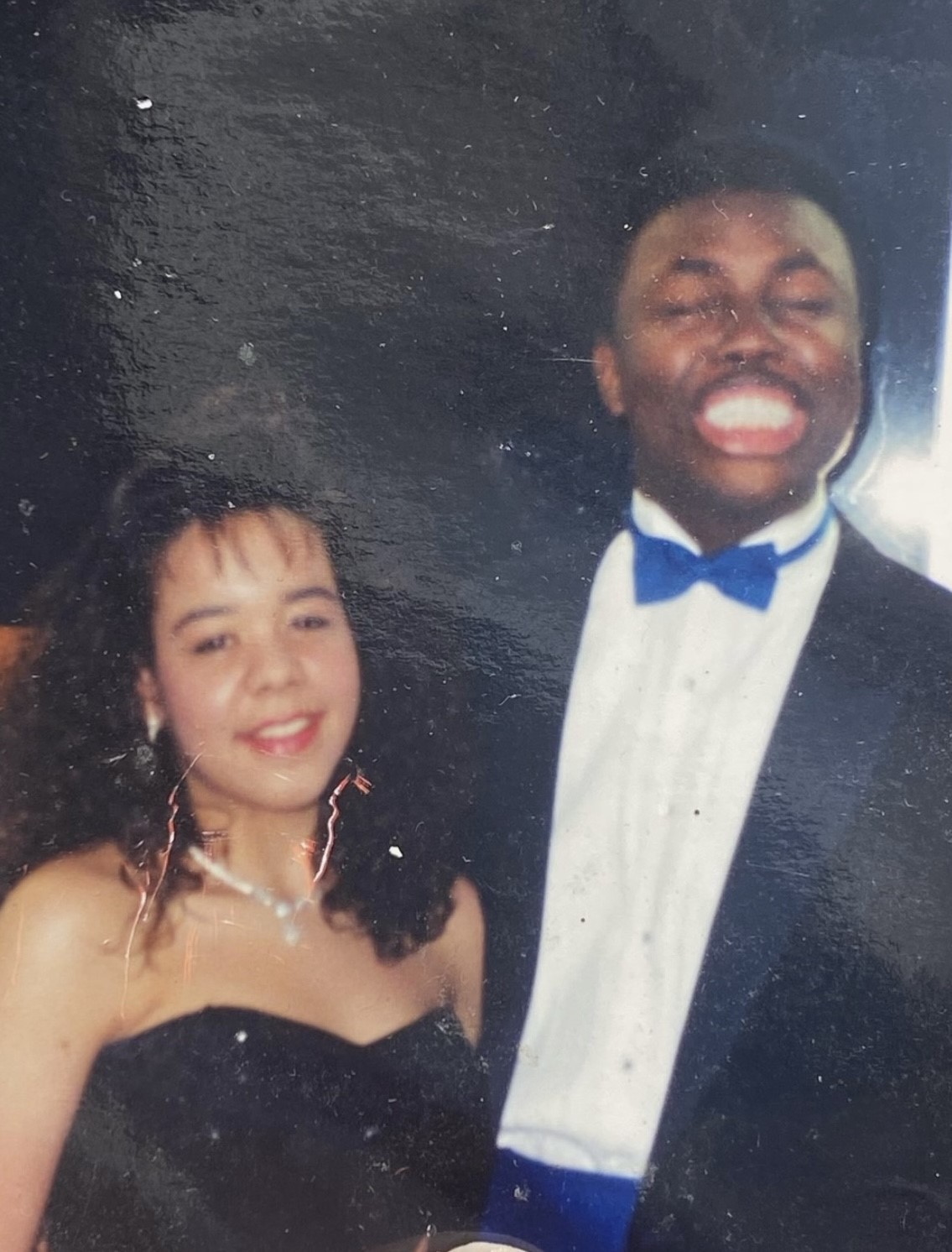Some people make WashU connections that will change their lives during their first year. Some even in the first semester or on their first day. New York native Sacha Coupet, AB ’91, however, made that connection the moment she stepped off the plane in St. Louis. “The first person I laid eyes on from WashU turned out to be my future husband,” she recalls.
Lee Clark, AB ’90, MBA ’00, had been helping the late Dean James E. McLeod orchestrate welcome weekend for the inaugural cohort of John B. Ervin Scholars finalists. When Dean McLeod handed him a list of names and a set of keys, “I hopped my skinny little self into an 18-passenger van and went to the airport to pick up Sacha Coupet,” Lee remembers. “I knew exactly who she was when she walked off the plane. She had this wonderment about her. I said, ‘I’m from WashU, and I’m here to pick you up,’ and little did I know, that started the adventure of a lifetime.”
That initial meeting at Lambert International Airport as teenagers led to a life together today as successful professionals who make time to volunteer for WashU. Lee and Sacha gladly acknowledge the vital role the university has played in their professional, personal, and philanthropic lives.

What role did mentorship at WashU play in your time here and beyond?
Sacha: Jim McLeod was like another father figure to me. He is who I want to mirror as a mentor, as a higher education administrator, as a teacher. My law students took the bar recently, and as I provide moral support and encouragement, I am dipping into what was poured into me by the people who loved me at WashU. I can only hope I can be the person for my students that people like Dean McLeod were for me.
Lee: My father died when I was young, and I didn’t have a lot of mentors growing up. So when people like Jim McLeod and Leon Ashford invested in me, that had a tremendous impact on the person I became. I became extremely involved in the university as a volunteer following graduation, in part because I wanted to ensure WashU could continue to provide the opportunities I was given.
How do those and other WashU experiences influence your philanthropic priorities?
Lee: We want to make sure that all of WashU is available to students who are looking for it, who need it. It’s great to have a hand in helping all students, and it’s especially great to help someone who is in a similar situation to mine all those years ago: an underresourced undergraduate who was looking for an opportunity to take advantage of a world-class education.
Sacha: Exactly. It is vital that programs like the Ervin Scholars continue to exist and thrive – programs that expand opportunities. As I reflect on the trajectory of my life because I was an Ervin Scholar, I can only imagine the doors that will open for future WashU students who are invited in and supported in this way.

Why is annual giving so important?
Lee: If you have nothing, you might as well say tuition is a million dollars. It can seem impossible. But annual gifts make education reachable for all our students. These gifts make the dream a reality with support for education, internships, study-abroad opportunities — and they equalize the experience for everyone.
Sacha: It wasn’t until after I graduated that the community aspect of WashU really sunk in. Community is not just the experience of the programs and systems that are already in place, but now I was responsible to contribute to making that community possible for those who came after me. As an alum, I am conscious that I owe an incredible debt of gratitude that I could never possibly repay. But we try.
Lee: And especially when you’re a young alum, it’s not really the amount of the gift that matters; it’s the fact that you give. Someone did the same for you once. Whatever you are able to give, however you’re able to contribute, it’s going to help someone.
What excites you about the future of WashU?
Sacha: I’m a scholar, so I’m really jazzed any time I hear about the impressive student interdisciplinary work that is taking place at WashU. Our young people are invited to the amazing conversations and groundbreaking research happening at WashU, and that’s absolutely transformative.
Lee: Also, as an Arts & Sciences grad, I think it’s great that we are leading the world in terms of humanities as well. We’re combining those studies with technology or with research on climate change, for example. It speaks to the relevance of the university in a holistic, cross-disciplinary way, and the relevance of fields like sociology or other social sciences – fields that might not traditionally make a lot of money, but are necessary perspectives as we look at how to address the world’s problems.
Sacha, a member of the Chicago Regional Cabinet, recently finished a term as co-chair of the Chicago chapter of the Black Alumni Council. Lee, a former 1990 reunion chair and member of the Alumni Board of Governors, is currently a member of the Arts & Sciences National Council. They live in the Chicago area with their daughter and their son, who carries Dean McLeod’s name.